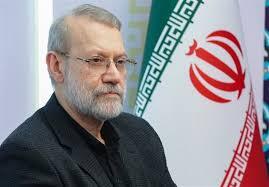
Professor Paul Pillar former CIA intelligence analyst in an interview with TABNAK said it is difficult to interpret comments of Iran's Secretary of the Supreme National Security Council about cooperation with IAEA.
Following is the full text of the interview:
Laurence Norman, the Wall Street Journal reporter claimed: "If no cooperation, E3 may well send the Iran file to the UNSC as early as November, I’ve been told. Iran can pretend the issue has gone away. It hasn’t. Worth remembering E3 have 12 months to send June’s non-compliance resolution to Security Council.” It seems the Wall Street Journal reporter is referring to the International Atomic Energy Agency (IAEA) Board of Governors resolution that was issued before Israel's attack on Iran. Accordingly, Europe intends to refer Iran's nuclear file from the IAEA Board of Governors (BoG) to the UN Security Council. Given that Iran's nuclear file is already subject to Chapter VII of the UN Charter due to the activation of the snapback mechanism, what are the objectives of this new European initiative?
Although it is true that with snapback already instituted, a new UNSC resolution focusing on compliance with the IAEA is unlikely to have significant material effect in terms of new sanctions, the European governments probably see bringing up such a resolution as a form of diplomatic pressure on Iran to induce better compliance regarding inspection access and accounting for enriched uranium.
If Europeans do so, ist't it probable that China and Russia would veto it? These two countries, in a joint letter with Iran, declared the activation of the snapback mechanism illegal and stated they would not comply with the UN sanctions.
Use of snapback mechanism is technically a separate issue from where things stand with regard to IAEA inspections and fissile material accountability. So a Russian and Chinese veto is not automatic despite their previous statements about the illegitimacy of snapback. There is still a good chance of such vetoes, though, given the larger Russian and Chinese relationships with Iran and opposition to Western initiatives generally.
Secretary of the Supreme National Security Council of Iran, Ali Larijani said, "Iran’s top security official says if the IAEA presents a proposal for cooperation with Iran, it will be reviewed by a committee at Supreme National Security Council Secretariat.". Larijani also said that DG Grossi 'has done his job and his [upcoming] reports [to BoG] will no longer have an effect.' What is your assessment of Larijani's statements?
This set of statements is difficult to interpret, except as a way of saying that Iran considers the IAEA to have the responsibility to come up with the next set of proposals to break the impasse it has with Iran.
Steve Witkoff recently stated: We also receive contacts from the Iranians. You know we hope to have a long-term diplomatic solution with Iran." He added, "We are working on this issue." What is your assessment of these statements?
I would not take Witkoff's statement at face value. He and Trump are currently seized with further negotiations on Gaza and with the Ukraine war. I doubt they are putting much time in right now in working the Iran issue.